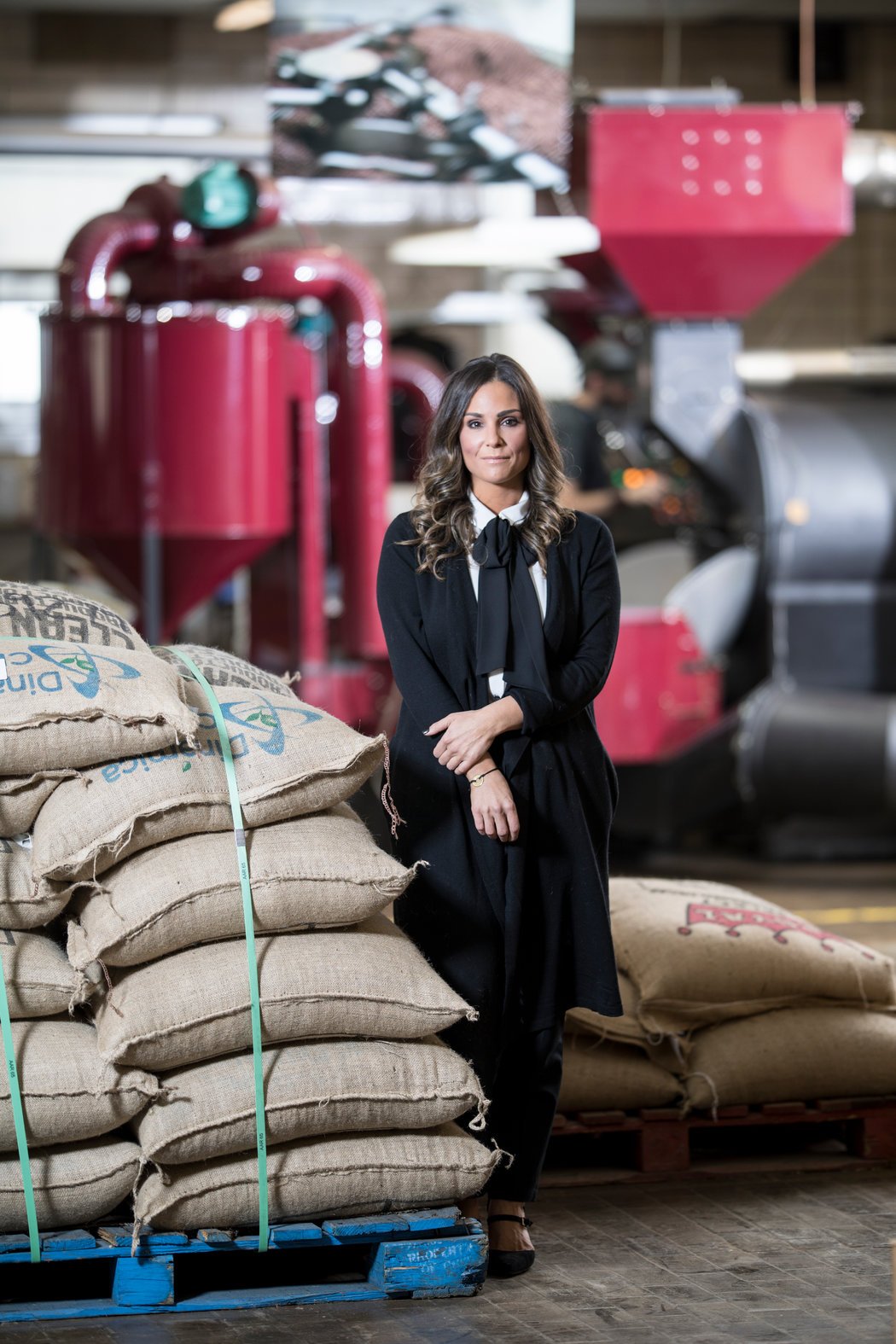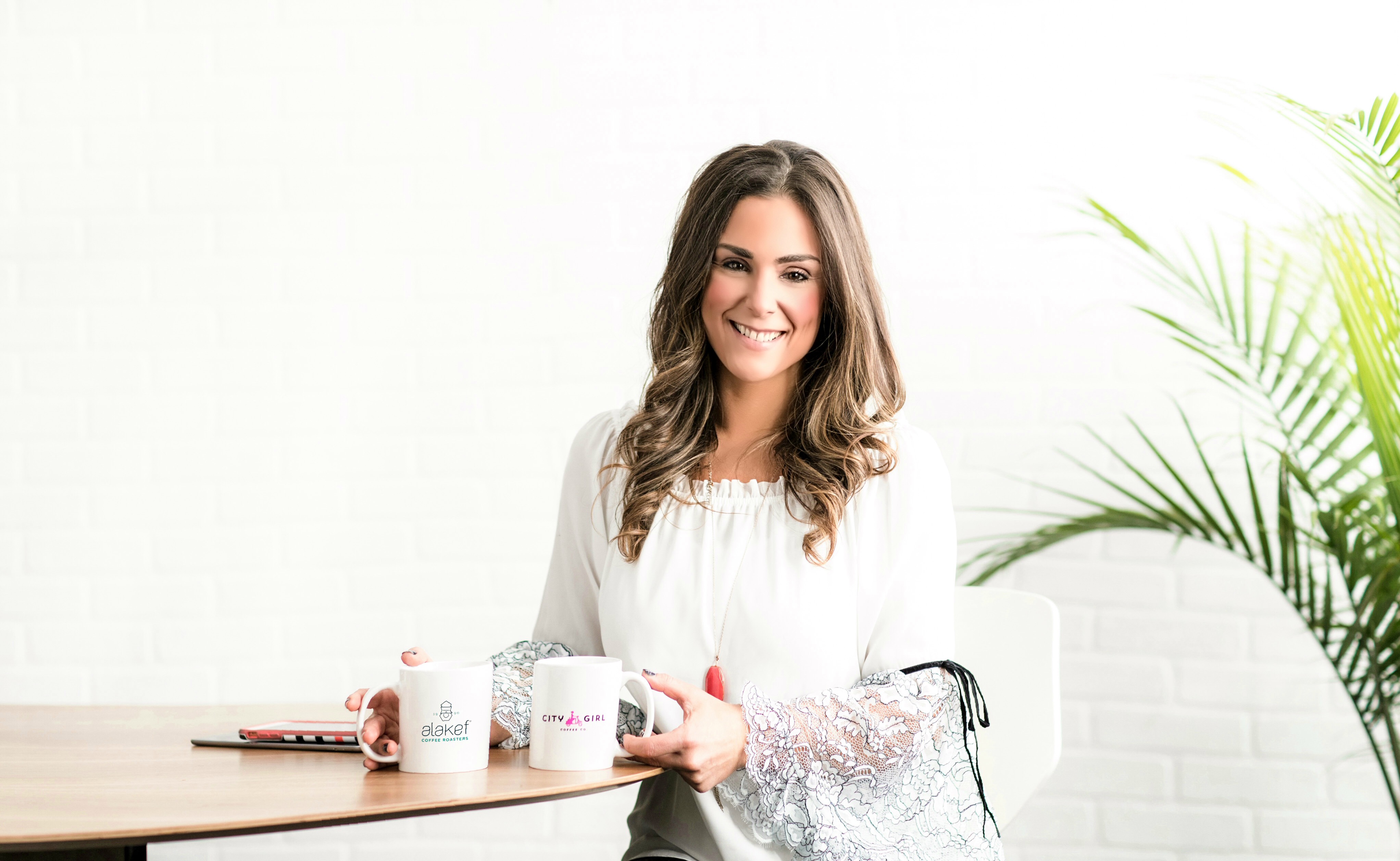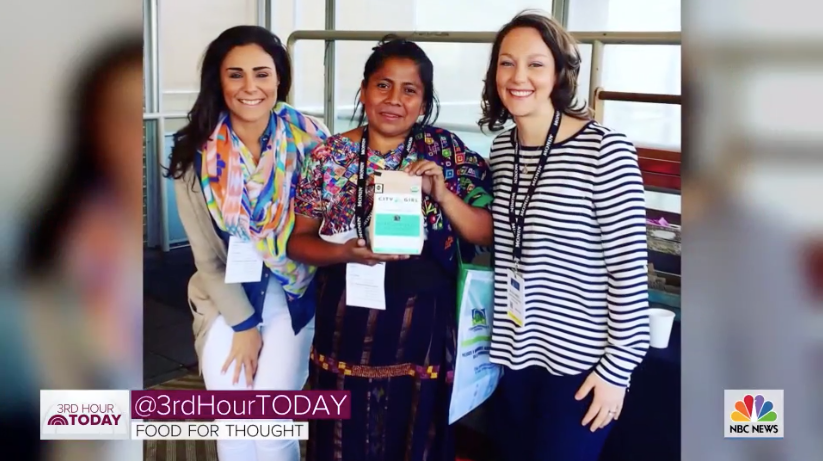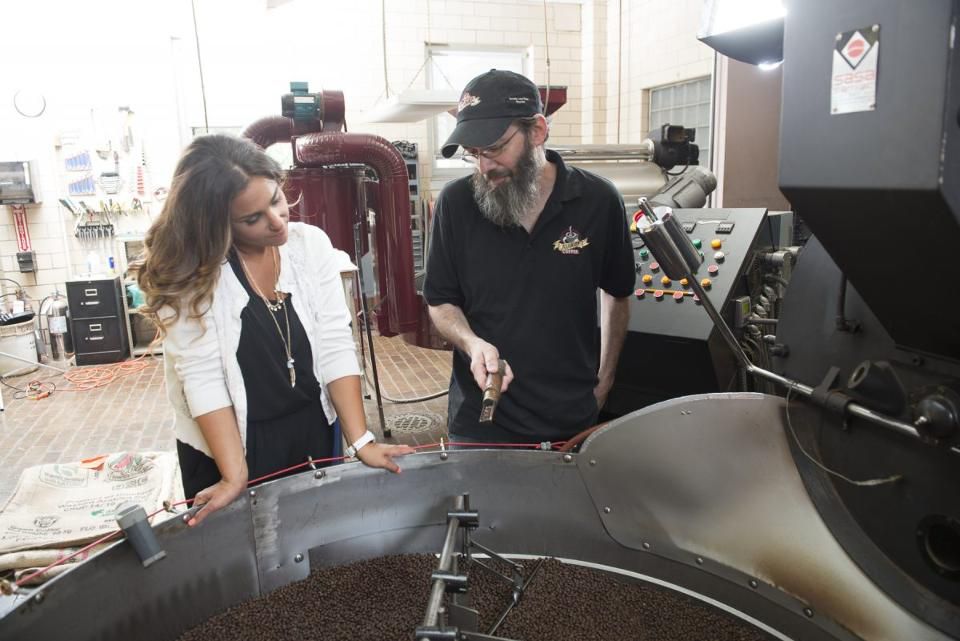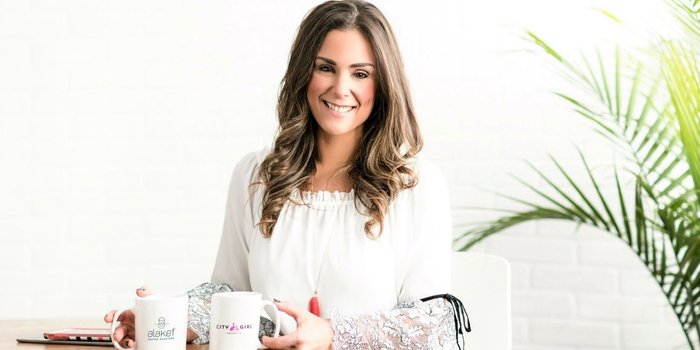MINNEAPOLIS — As a child, Alyza Bohbot always respected the unflappable work ethic of her parents, who ran Alakef Coffee Roasters in Duluth, Minn. Still, in late 2014, when she was in her 20s, that didn’t stop her from warning them of their company’s potential downfall.
In Ms. Bohbot’s estimation, Alakef — a profitable enterprise that financed her voice lessons, provided for family vacations and allowed her to enroll at a private university — had grown stale.
“We were hitting a plateau, and it needed to be reinvigorated,” said Ms. Bohbot, now 32, all steely determination and dry humor. Her parents considered selling the company, but instead, she thought, “We needed someone to come in and infuse a lot of new energy.”
That person, she decided, was her.
“But I don’t want to come in and keep things ho-hum,” she told her parents. “If I’m going to do this, I want to make it my own and grow it and bring it somewhere new.”
So after taking control of the family business just under three years ago, she made the start of a sister company, City Girl Coffee Company, her primary focus. Unlike Alakef, City Girl is bold and risky, from its bright-pink logo and packaging to its business plan’s central tenet: fighting gender inequity in the coffee industry.
On average, according to the International Trade Center, women do 70 percent of the work in getting coffee to market but regularly cede or are barred from financial control, so City Girl gets its beans exclusively from farms and cooperatives that are owned or managed by women. In addition, the company donates 5 percent of all profit to organizations that support women in the industry, including the International Women’s Coffee Alliance, or I.W.C.A., and Café Femenino.
When consultants told her that “it’s great to have a mission, but it’s not enough to drive sales,” Ms. Bohbot insisted that an “unapologetically feminine” coffee brand would find consumers. Even so, the company’s success has exceeded her expectations: Sales — principally through City Girl’s online store and in the Twin Cities’ high-end retailers, including Kowalski’s Markets and Lunds & Byerlys — are up 300 percent year over year.
City Girl aims to break into other Midwest markets, including Chicago, St. Louis and Des Moines, and then to select cities on the East Coast. Still, Ms. Bohbot is willing to be patient.
“If you blow up too quickly, you will sacrifice something,” she said.
She has played witness to a slow build before. When her parents, Nessim and Deborah Bohbot, moved to Duluth from Israel in the late 1980s, they were dumbfounded by their new neighbors’ preference for mass-market coffee brands like Folgers and Maxwell House, so they began roasting coffee in their basement. After locals started taking notice and wanting to buy the coffee, Alakef was formed.
“People thought we were crazy,” Mr. Bohbot, 70, recalled with a laugh. “At first, people didn’t understand why they had to pay so much for specialty coffee when you could go to a gas station and get it for 20 cents a cup. We had to educate them.”
Back then, Alakef was one of only a handful of specialty coffee roasters in Minnesota. Mr. and Mrs. Bohbot, speaking from their second home in Nice, France, noted that theirs was also one of the first coffee companies to be certified organic by the Minnesota Crop Improvement Association. Now specialty coffee accounts for 55 percent of a national coffee industry valued at $48 billion annually, according to the Specialty Coffee Association of America’s “State of the Coffee Industry” report this year. And as a share of cups, the report said, 51 percent of all coffee consumed in 2016 was considered gourmet.
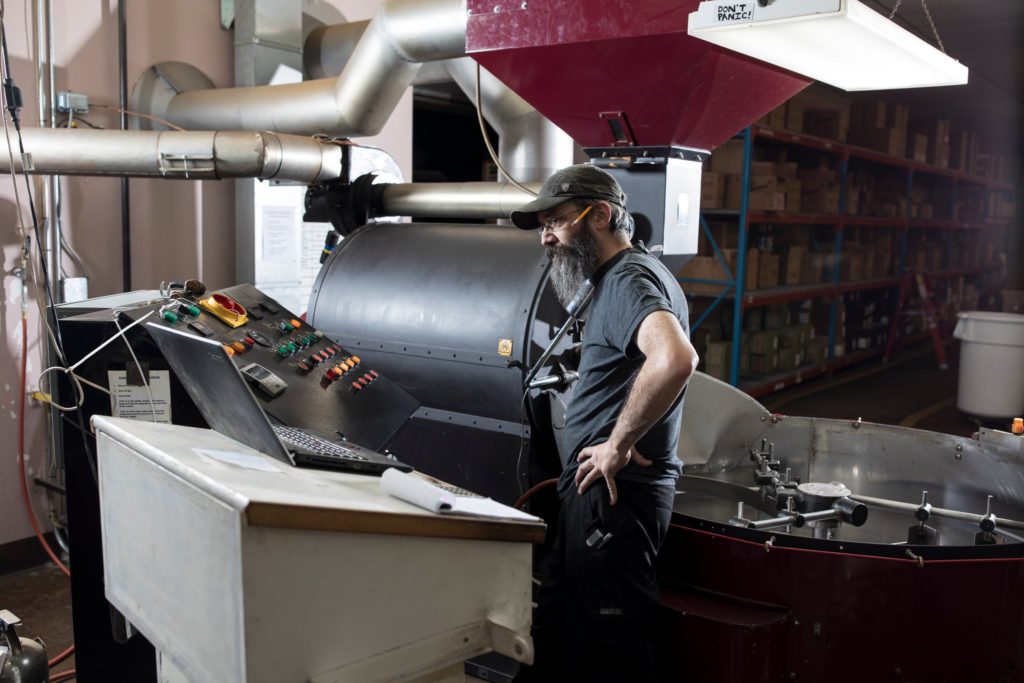
Ezra Bennett monitors his computer as he roasts coffee beans at Alakef Coffee Roaster in Duluth, Minn. A sister company, City Girl Coffee Company, has exceeded sales expectations. Jenn Ackerman for The New York Times
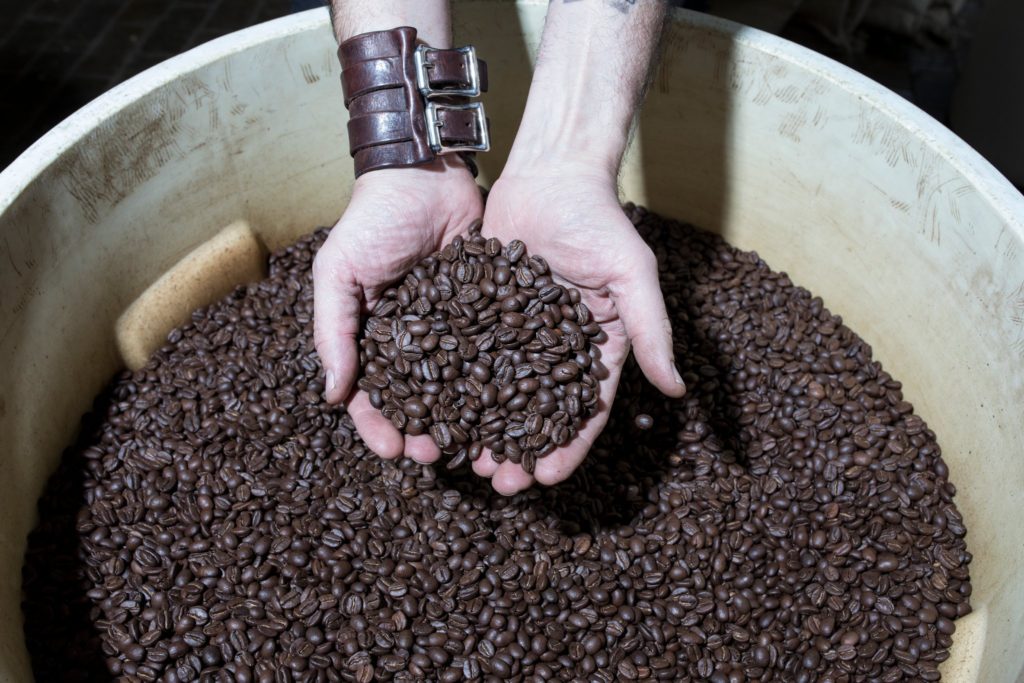
Alyza Bohbot came up with the idea for City Girl Coffee Co. when she learned that while women do most of the work in getting coffee to market, few are allowed to have any financial control. Jenn Ackerman for The New York Times
Ms. Bohbot initially intended to study vocal jazz at Syracuse University, but after discovering she had vocal cord nodules, she switched to retail management. In 2008, she moved to Boston to work in sales for the maker of Samuel Adams beer; after two years, she went back to school for a master’s degree in guidance counseling. In mid-2014, when her parents told her that they were contemplating selling Alakef, she thought for the first time about taking over the business.
Her parents were excited for her but reluctant to let her take over the business. “We wanted to be sure it was her passion,” Mrs. Bohbot, 65, said.
Returning home for a six-month trial period, Ms. Bohbot quickly realized she couldn’t bear to see the company trade hands. “That was my whole life” when she was growing up, she remembered thinking. “Wait a minute, we’re just going to walk away from it?”
Only a few months later, in April 2015, Ms. Bohbot struck upon her idea for City Girl after attending an International Women’s Coffee Alliance breakfast at a conference in Seattle. There she learned of a Colombian widow unable to keep her family’s coffee farm simply because of her gender; in many countries where coffee is grown, women are silent laborers left out of decision making largely because of cultural norms.
“The women were out of the loop even though they were doing the majority of the work,” said Connie Kolosvary, program director for Café Femenino. Café Femenino, which was formed in 2004, not only pays a premium for beans from cooperatives that follow its strict guidelines to empower women but also pays its female members directly for their harvests.
With the men aware that more money is coming in simply because of female involvement, Ms. Kolosvary said, “for the very first time these women are now viewed as having a leadership role in their communities.”
The I.W.C.A., with legally recognized chapters in 22 countries, helps mobilize women in the industry and provides a platform for them to share the challenges they face. Josiane Cotrim, chapter president for Brazil, the largest coffee-exporting country, said the support of organizations like the I.W.C.A. meant “the woman was no longer the daughter or the sister or the wife of someone in coffee.”
“We were women in coffee,” added Ms. Cotrim, who was raised on a coffee farm. “We had an identity.”
Ms. Bohbot, who serves as a marketing co-chairwoman of the I.W.C.A., said she, too, faced challenges when she entered the coffee world, though they were largely business-related. Some of her chief competitors have argued that City Girl’s female-empowerment message is little more than a marketing ploy. But “in this day and age, you can’t have a good product without having a good marketing story,” Ms. Bohbot said.
Also, buying coffee from growers run by women “adds a whole other layer of stress on our company,” she said. “We have to work diligently to reach out to all of our importers to use our connections to find this coffee and bring it in.”
Ms. Bohbot, who has made local philanthropy an increased priority at Alakef and will introduce new packaging and an updated logo there next year, said she got personal satisfaction from City Girl’s success and being viewed as a leader among her female peers.
When women in every industry are fighting daily battles to achieve equality, “I feel hopeful,” she said. “Women are vocalizing more than ever before. To speak out and not settle. To demand our place in society.”
 This article appeared in The New York Times on December 20, 2017.
This article appeared in The New York Times on December 20, 2017.

